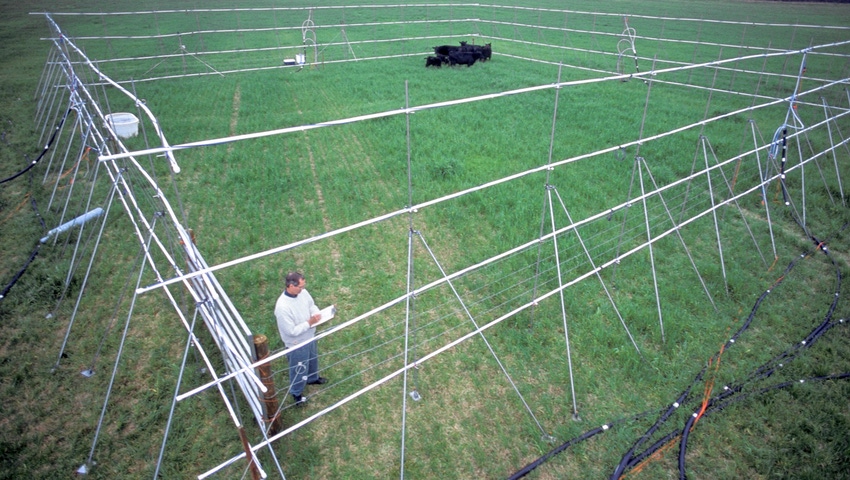
Lately, cattle and the cattle industry have been the focus of a lot of criticism. Some of the slings and arrows are, at least in part, justified. There are few of us who could improve our stewardship of the resources under our management.
That said, a great deal of the furor is a solution looking for a problem. For some people, the solution to any problem is always granting more money, power and control to bureaucrats and politicians. A realistic look at the cost-to-benefit ratio (both monetary and human) of these government-run solutions should be enough to preclude their serious consideration by logical people.
According to the former “global warming” militants -- now "climate change" militants -- we are destroying the planet by spewing out so-called greenhouse gases. They claim these horrible gases raise the temperature of the earth by acting like blankets preventing heat from escaping into space. It has gone so far that the courts have declared carbon dioxide (CO2) to be a toxic pollutant. If CO2, which through green plants and photosynthesis is the source of food for all life, is poison then what about water? Valid science tells me that water vapor is the greenhouse gas with the greatest effect on climate.
Humans are deemed to be villains because they burn fossil fuels (which release CO2), and insist on raising animals that convert plants into meat, milk and fiber. These terrible creatures, by their method of digestion release methane (CH4), which everyone knows is 23 times more potent than CO2 as a greenhouse gas. However, it is seldom mentioned that methane released by animals lasts only a couple of hours in sunlight and is rapidly broken down – if the cattle are grazing healthy pasture – by bacteria known as methanotrophs.
Some scientists and some politicians assure us that “the science is settled” on their climate change game, and if we don’t repent and change our sinful ways, we will all burn up by 1970, then 1990, now 2031, all because we persist in raising animals that convert plant material into carbon dioxide and methane.
The truth is that all organic material – anything that has ever been alive – will eventually, by some pathway, decompose. Decomposition in the presence of oxygen releases CO2; without O2, CH4 is released. Doing away with all animals that exhale CO2 and produce MH4 in their guts would do nothing to reduce either gas. This has been recommended; I kid you not. Incidentally, all animals, including humans, release these gases. Maybe we should ask for volunteers for extinction?
I do not claim to be expert in my knowledge of human effects on climate. I do know a little about biology and ecology. Basic truth is that populations of organisms will increase as their food supply increases. More CH4 = more organisms that consume CH4. More CO2 = more green plants and more O2.
Nature has been doing a pretty good job keeping things in balance for a long time, even with tremendous amounts of “greenhouse gases” being released constantly by volcanic activity. If we are going to make heroic efforts to drastically reduce these gases, we would be wise to proceed only after thinking through the total and long-term effects of our actions.
There is a project under way in Australia to genetically modify rumen bacteria so that they do not produce CH4. What will shutting down this gas do to the digestion process? Also, CH4 in the gut keeps the intestines inflated. Removing this positive pressure will allow the intestine to collapse, causing twisted guts and death. CH4 is a necessary part of life for many organisms. What will happen when these CH4-destroying bacteria escape into the environment?
Another idea being floated is to build huge machines to filter CO2 out of the air and store it under ground. Perhaps we could do that – given enough time and lots of other peoples’ money, but encouraging green plants and soil life will achieve the same thing with positive rather than negative side effects. If taking carbon out of the air is desirable, planned high-stock-density grazing can put carbon in the soil while creating both monetary and biological capital.
To me, the real danger of this fear of CO2 in the atmosphere is that some brilliant idiot will discover a way to drastically reduce CO2 and starve all us to death. We have far too many “educated” people in positions of authority. They lack the ability (or willingness) to understand how their simplistic approaches affect all parts of the completely interrelated soil-plant-animal-wealth-human complex that is our world and all that is in it.
The opinions of the author are not necessarily those of Beef Producer or Farm Progress.
About the Author(s)
You May Also Like




